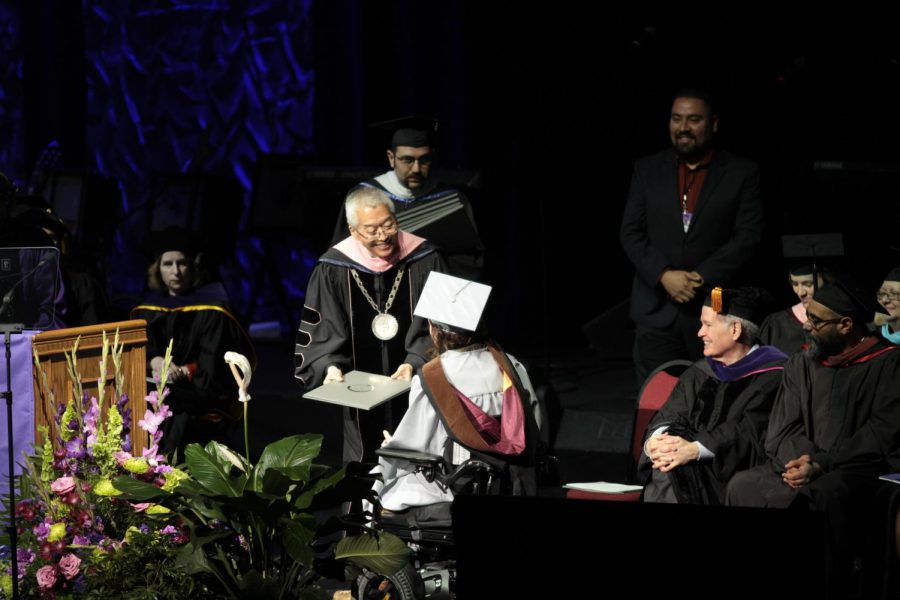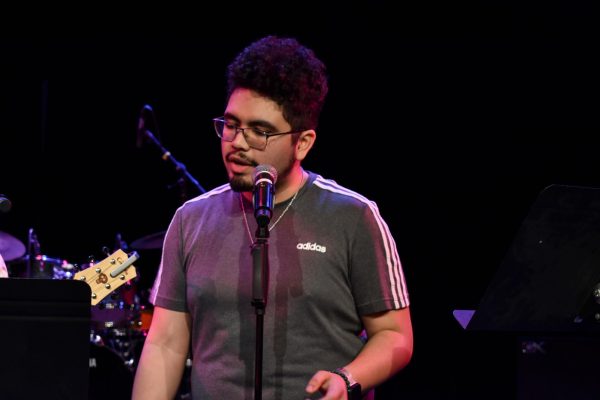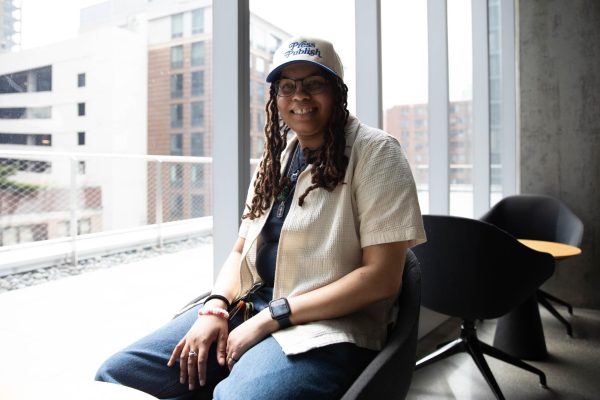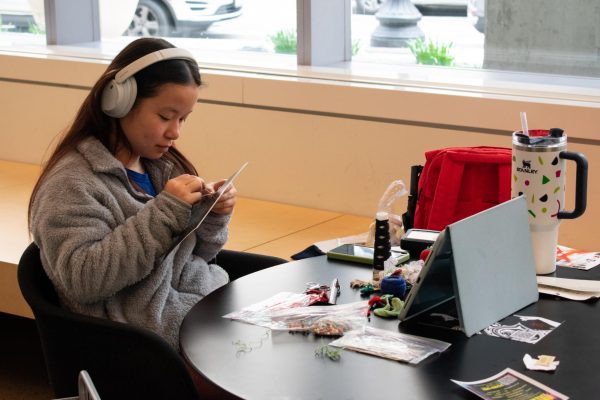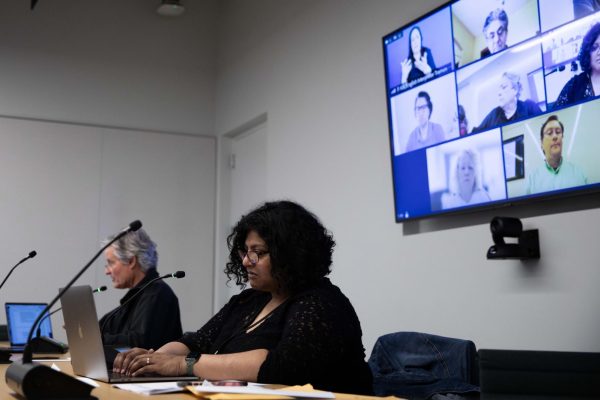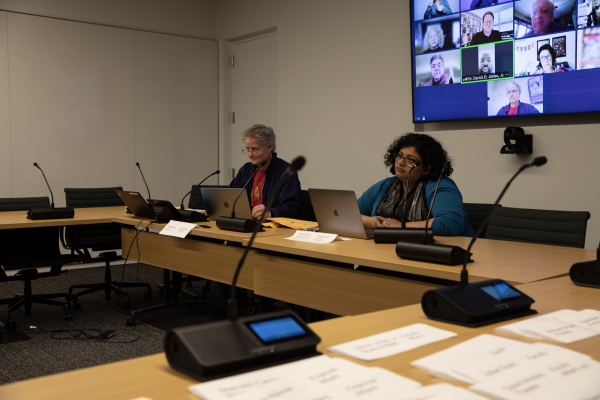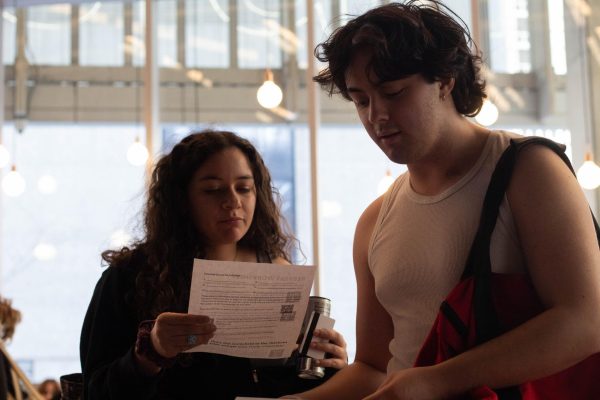College to replace valedictorian speakers with senior speech winners
March 27, 2017
Instead of having valedictorians deliver the customary commencement address, this year’s graduation ceremonies will feature students who competed for the honor, according to several college leaders.
Graduate and undergraduate students with a 3.0 GPA or higher can apply to give speeches at this year’s five commencement ceremonies, scheduled to be held May 13 and 14 at the Auditorium Theatre, 50 E. Congress Parkway.
The idea to replace valedictorian speakers came from President and CEO Kwang-Wu Kim, who wanted to hear varied student perspectives at the ceremonies, said Sharon Wilson-Taylor, vice president of Student Affairs.
“Dr. Kim believed that most ceremonies for a college don’t have a valedictorian; that’s [for] high school,” Wilson-Taylor said. “He wanted to see our commencement move to where we have a student speaker, not based on grade point average. [Students will] still need a 3.0 and above. However, he wanted to hear a more diverse voice.”
Kim was not available for comment as of press time.
According to the college’s website, students who wish to apply must submit a brief personal statement; an outline of the proposed speech, which must be five–to–seven minutes in length; a résumé; and two reference letters with at least one coming from a member of Columbia’s faculty or staff. All applications are due April 10 by midnight.
Wilson-Taylor said the speech topics must be engaging to audience members and should focus on the students’ experiences at Columbia.
“It must be a journey students can relate to,” Wilson-Taylor said. “This speech is telling a story and it’s outlining the experience. A good speech tends to engage others and draw them in. We’re trying to have students tell us about how being [at Columbia] shaped them.”
After submitting their applications, students selected as finalists will be notified the week of April 17, asked to provide a written draft of their speech and present the speech before the selection committee, according to the college’s website.
Wilson-Taylor said the selection committee has not yet been formed but will be composed of both faculty and staff members, and she is also considering adding a student representative to the committee. The committee’s mission is to not only select the speaker but also help students improve their speeches, she noted.
Speaking at the ceremonies is beneficial for students, Wilson-Taylor said, because it gives them the opportunity to reflect on their time at the college.
Luke Wilusz, a former managing editor at The Chronicle and journalism alumnus, was a valedictorian speaker at his 2012 commencement ceremony. Wilusz said he was honored to be able to speak on behalf of his graduating class.
“I liked the opportunity to summarize my time at Columbia, what it meant to me, what I gained from my education and what the future held for my graduating class,” Wilusz said.
Wilusz said he is in favor of student speakers at the ceremonies, who do not necessarily have to be valedictorians.
“The main thing is for students to have a voice in their ceremony and something to say to their graduating class,” Wilusz said. “There’s something to be said for someone who’s been through what you’ve been through and who’s also at the same stage of you’re life and graduating. That’s something they can relate to.”
Student Government Association President and senior business and entrepreneurship major Kaela Ritter said the college was smart to choose to hear from a range of voices.
“Getting to hear those stories as we transition into the real world, it’s a benefit for us all and it’s a relief not to hear only the smartest person in your class, but someone who you may have had a shared experience with,” Ritter said.
Ritter, who will be graduating in May, said graduates need to hear from someone who can provide encouragement to those entering the next phase of their life.
“A good speaker for commencement [is] someone who’s relatable, someone who can articulate their journey well, but also someone who can present a certain amount of passion of what their speaking about,” Ritter said. “I hope that we are able to find really impactful stories that will transcend into the audience.”


